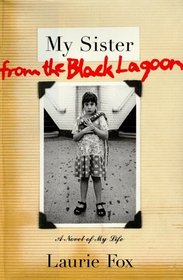Helpful Score: 6
Lorna is good, Lonnie is bad. In the Persons family, these are the roles of the two daughters--equally troubled but unequally equipped to handle the absurdities of everyday life. Though Lonnie is the "officially crazy one" in the eyes of the world, the rest of the clan is far from normal--at least, in Lorna's eyes. Her mother is a frustrated housewife, worn down by the struggle to appease Lonnie's fits of rage and dementia, while father--exhausted by the tensions of the corporate world--has little energy left over to abide Lonnie or appreciate Lorna. Although younger than her sister, Lorna feels responsible for Lonnie's welfare, for the well-being of the entire family--a losing battle, if ever there was one.
To escape the pressures and unpleasantness of reality, Lorna relies on her imagination: She becomes a ballerina, a Broadway songstress, a Miss Universe contender. The interiors of her mind provide relief from the role she must play in her family and elsewhere: She is the good girl to everyone but herself. ("Ever since I was six and halfway aware that something about Lon didn't work right, I've been vigilant about ... counting the things I am grateful for. Or could be grateful for, if I were a good person.") The only difference between her and Lonnie, she is convinced, is that she is simply a better actress.
Lorna guides us through her real and fantasy life, from the angst of lonely adolescence to the trials of finding and losing love, and finally to the relief and reward of acceptance. Through it all, Lorna remains true to herself. And though she doesn't always think much of the person she is, she emerges from childhood a strong, passionate, and compassionate figure, realizing that--despite all the pain and guilt of growing up with a mentally ill sister, a "sister from the black lagoon"--Lonnie represents the best and worst of her own life and identity. --Leah Ball
To escape the pressures and unpleasantness of reality, Lorna relies on her imagination: She becomes a ballerina, a Broadway songstress, a Miss Universe contender. The interiors of her mind provide relief from the role she must play in her family and elsewhere: She is the good girl to everyone but herself. ("Ever since I was six and halfway aware that something about Lon didn't work right, I've been vigilant about ... counting the things I am grateful for. Or could be grateful for, if I were a good person.") The only difference between her and Lonnie, she is convinced, is that she is simply a better actress.
Lorna guides us through her real and fantasy life, from the angst of lonely adolescence to the trials of finding and losing love, and finally to the relief and reward of acceptance. Through it all, Lorna remains true to herself. And though she doesn't always think much of the person she is, she emerges from childhood a strong, passionate, and compassionate figure, realizing that--despite all the pain and guilt of growing up with a mentally ill sister, a "sister from the black lagoon"--Lonnie represents the best and worst of her own life and identity. --Leah Ball
Helpful Score: 2
Coming of age in a dysfunctional family genre - well written, from a girl's point of view.
Helpful Score: 2
Fascinating story of growing up with a sister who has mental-health problems and the toll it takes on the whole family. Beautifully done.





